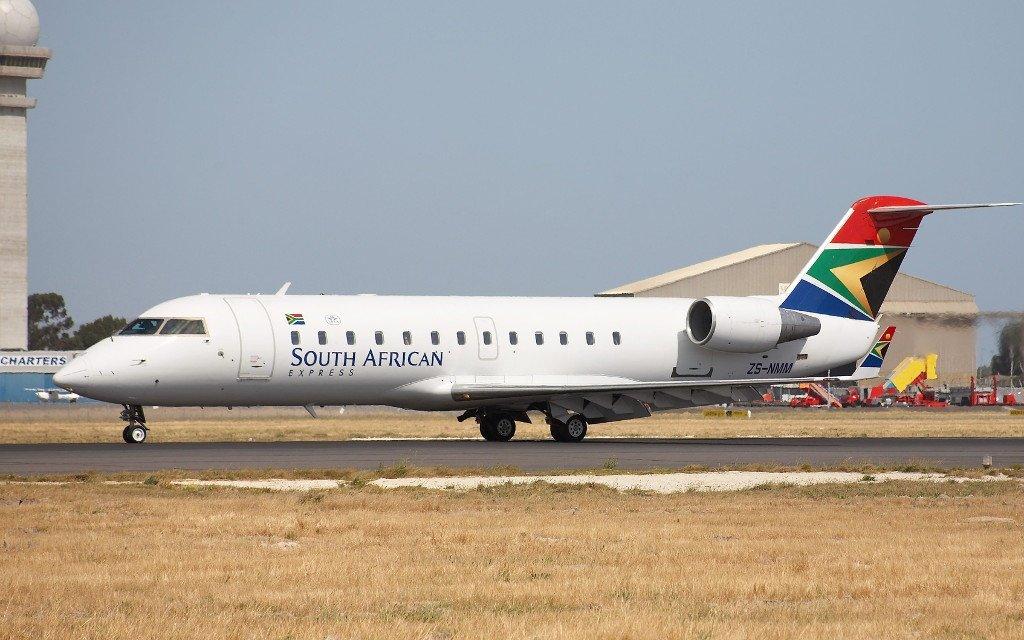Africa-Press – South-Africa. The bidding process for state-owned regional airline SA Express (SAX) will be re-opened, a member of the provisional liquidation team confirmed on Wednesday.
The airline has been in provisional liquidation for almost two years, since April 2020, after a failed attempt at business rescue. In January this year, the return date for a final liquidation application was once again extended, this time to 4 July, to see if a suitable deal can be reached to sell the airline, which has liabilities of more than R900 million.
FLY SAX, a consortium of former employees of SAX, was declared the preferred bidder about 17 months ago.
At the time, the provisional liquidators indicated the amount to be raised was R50 million. The sale by the liquidators of some of the airline’s assets raised about R30 million and Fly SAX aimed to raise the remaining amount of about R20 million.
Fly SAX also intended to raise working capital by means of a crowdfunding platform run by the Uprise group. The CEO of Uprise Africa is Tabassum Pardesi, former co-chair of grounded low-cost SA airline Skywise. Fly SAX could, however, not meet the requirements set out by the provisional liquidators and has since then been trying to finalise a deal.
In a statement on Wednesday, Fly SAX admitted that its bid did not initially meet the requirements of financing the full balance of the purchase consideration.
“After recurring efforts of revising the offer, we have subsequently resolved this ambiguity with the liquidators. After careful and considerate evaluation, the liquidators have finally allowed us to follow the due procedure,” states Fly SAX.
“However, we do understand that this may result in the opening and submission of new a bid process to remain fair with other potential bidders and we gladly accept the challenge. Our end goal is to see the revival of SA Express, and may the best bid succeed.”
In January this year, Fly SAX announced that Chris Hart, executive chair of venture capital firm Global Impact Investments, is leading its fundraising efforts to try and save SAX.
On Wednesday Hart commented that the reopening of the SAX bidding process is to try and achieve a better price for creditors.
“The collapse of SAX left a void in the market which a viable operator can fill. The principle reason for the collapse of SAX was state capture malfeasance and not the soundness of the fundamental business case of SA Express,” said Hart. “We are consequently looking at different options, which includes resubmission of another bid should the process be reopened.”
Corruption
The State Capture Inquiry has directed police in the North West to urgently conclude an investigation into corruption involving SA Express, including claims that former transport minister Dipuo Peters and others received kickbacks from a corrupt ground handling contract.
The inquiry also found that officials from the North West government flouted a host of procurement rules in 2015 when they awarded SA Express a five-year, R400 million contract to provide flights and ancillary serves to Mahikeng and Pilanesberg airports.
In addition, Fin24 reported in February this year that an inquiry by the provisional liquidators of SAX has found unreliable debtor’s information – due to corruption allegations – and encountered “uncooperative” directors.
The investigation established that SAX was seemingly trading as a going concern from 2004 to 2010, as it could pay its debts on time and employees received bonuses during this period. The financial distress of SAX started from 2012. The company started to seek funding at the time due to the costly leasing of aircraft – higher than the airline’s revenue.
The board of SAX considered business rescue or liquidation at least on two occasions during the period 2012 to 2017, but there was no support from its shareholder, the Department of Public Enterprises.
For More News And Analysis About South-Africa Follow Africa-Press






